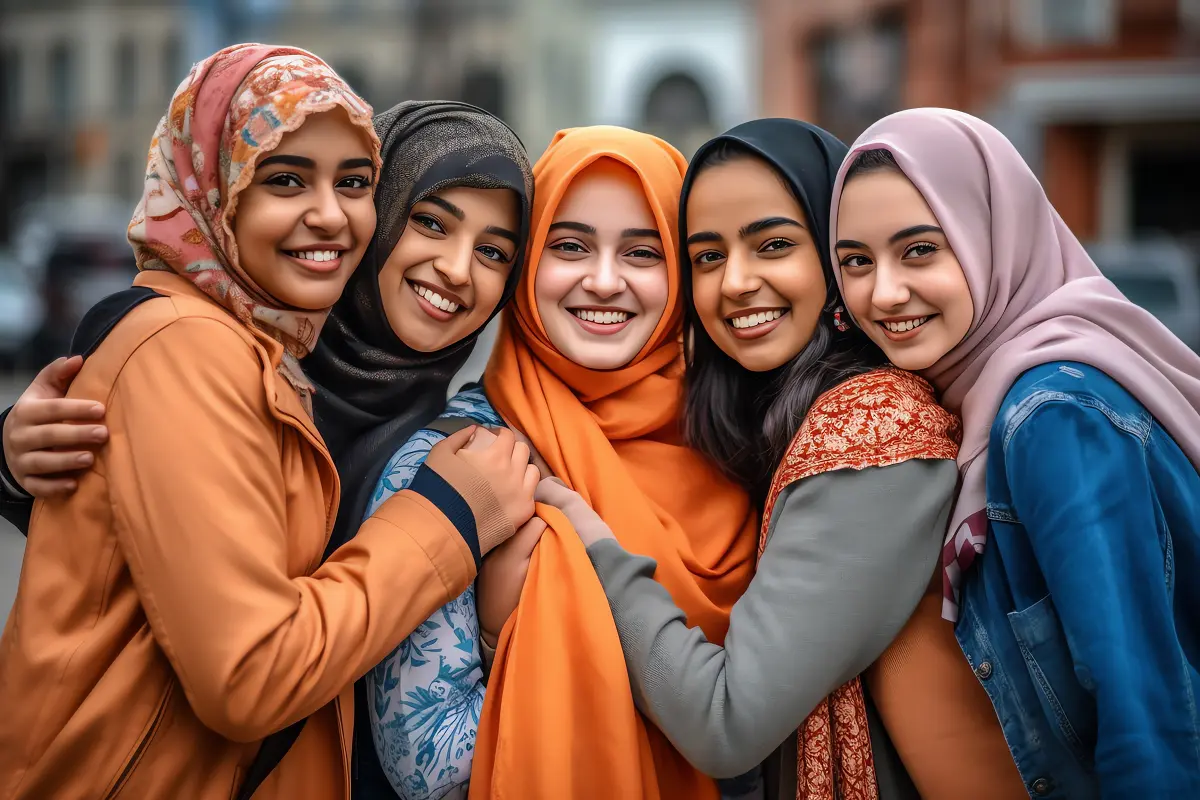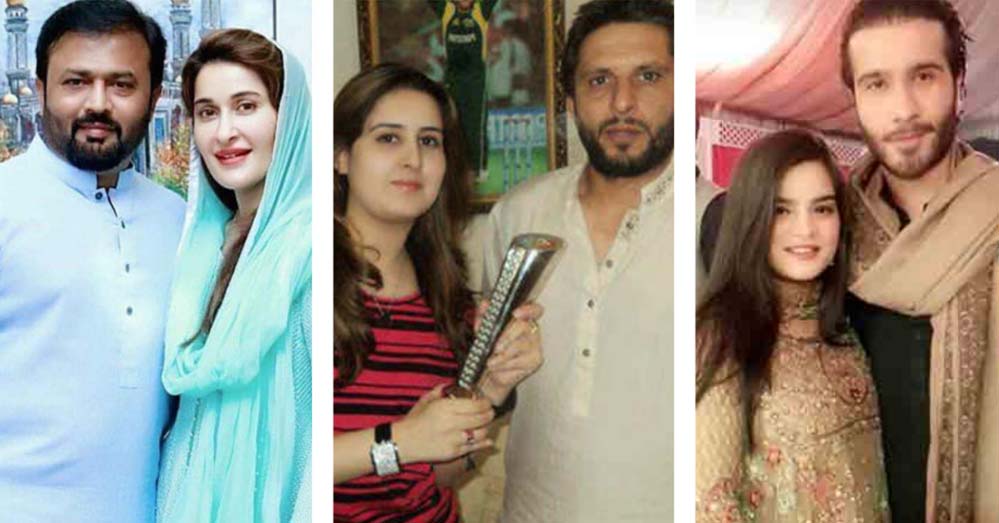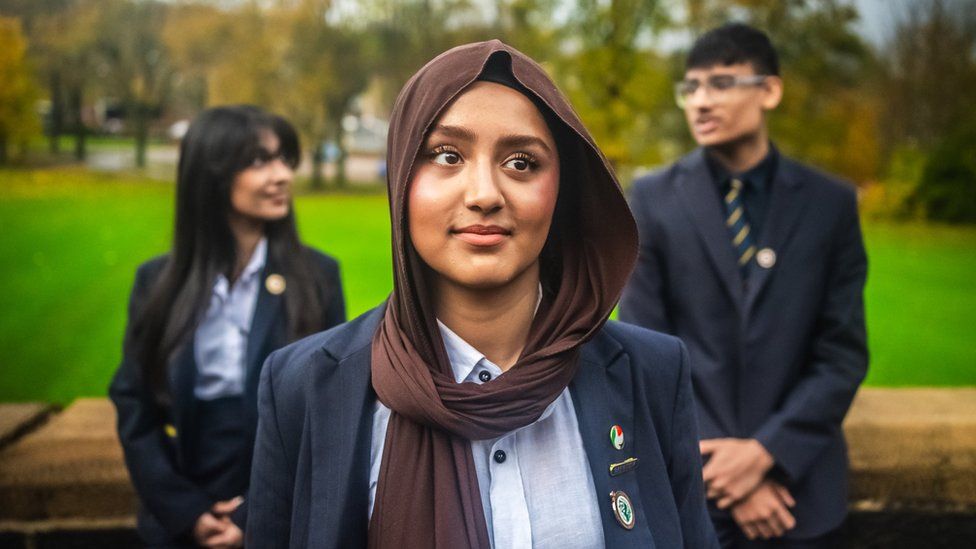News
Today’s Pakistani Youth in UK Say Cousins Marrying Cousins is Disgusting

Research in the UK indicates that there has been a precipitous decline in the number of cousin marriages among Bradford’s Pakistani population over the last decade. Changing immigration policies, shifting family relationships, and increased levels of education are all factors that could be at play.
Juwayriya Ahmed married her cousin in 1988. The 52-year-old teacher says her children once asked her how she and their father met.
“I was laughing at them. I said I didn’t really meet him. My parents took me to Pakistan and my dad said you’re going to marry this person. And I sort of knew who he was, but the first time I met him properly was at the wedding,” she says.
“My kids said that was disgusting. And then they told me, ‘Don’t you dare make us do anything like this.'”
Ten years ago researchers studying the health of more than 30,000 people in Bradford found that about 60% of babies in the Pakistani community had parents who were first or second cousins, but a new follow-up study of mothers in three inner-city wards finds the figure has dropped to 46%.
The original research also demonstrated that cousin marriage roughly doubled the risk of birth defects, though they remained rare, affecting 6% of children born to cousins.
“In just under a decade we’ve had a significant shift from cousin marriage being, in a sense, a majority activity to now being just about a minority activity,” said Dr John Wright, chief investigator of the Born in Bradford research project.
“The effect will be fewer children with congenital anomalies.”About 25% of Bradford’s population is Pakistani in origin, according to the 2021 census. Cousin marriage is widespread in Pakistan-administered Kashmir, where many Bradford families originate.
Sometimes a young person in Bradford is married to a cousin in Pakistan, who then comes to live in the UK. But members of the community say there have been inter-generational tensions over this tradition, with some young people firmly rejecting the idea of arranged marriage – and cousin marriage in particular.
“Our generation really fought for it,” says one young woman.
“Ten years ago my mum was adamant we would all have cousin marriages but now she doesn’t focus on that. I think families realised they couldn’t control it. They knew that being in Britain, and being exposed to so many different viewpoints, it is going to change.”
Academics say there are a range of reasons for the fall in first-cousin marriage
Professor of health research, Neil Small, who has been involved with Born in Bradford from the start, says a number of possible explanations for the rapid fall in cousin marriage are now being explored in consultation with the community:
- Awareness of the risk of congenital anomalies has increased
- Staying in education longer is influencing young people’s choices
- Shifting family dynamics are changing conversations about marriage between parents and children
- Changes in immigration rules have made it harder for spouses to move to the UK
One person affected by new immigration rules was Bradford-born Ayesha, who married her first cousin in Pakistan eight years ago and gave birth to their first child the following year.
Her husband was unable to move to the UK until the baby was two. Meanwhile Ayesha had to work long hours as a home care worker to reach a salary threshold introduced in 2012 for anyone wanting to bring a spouse from outside Europe to live in the country.
She thinks cousin marriage is a valuable tradition though, and regrets that it appears to be in decline.
“I don’t think my children will marry cousins. They will lose that connection with Pakistan and I feel sad about that,” she says.
In fact, two of Ayesha’s younger sisters, both in their 20s, have rejected the idea of cousin marriage. One, Salina, recently married a man of her own choice, with her parents’ consent.
“I’m outgoing and I want to work and do things with my life. Someone from Pakistan wouldn’t accept this at all,” she says. “They would never let me live like this. We wouldn’t agree on how to raise kids and how to teach them values.”
The other sister, Malika, is also planning one day to choose her own husband.
“Before, even if you had an education, you wouldn’t be expected to carry on with it, you would have been thinking of marriage,” she says. “Now that’s changed and the mindset is so different.”
She adds that young people today have more opportunities to meet potential partners than their parents ever did, and that social media has helped provide “contact with people outside our parents’ eyes”.
The Born in Bradford team has made efforts to explain to the community how congenital anomalies come about. They occur when both parents carry a particular defective gene, which may happen when the parents are unrelated, but is more likely when they are cousins.
Anomalies can affect the heart, the nervous system, limbs, the skin or other parts of the body. They are sometimes untreatable and can be fatal.
Dr. Aamra Darr, a medical sociologist with the University of Bradford’s Faculty of Health Studies, says Pakistani cousin marriage is a risk factor, but not a cause of congenital anomalies.
She points out that the 2013 Born in Bradford study showed that the risk of married cousins having a baby with a congenital anomaly was similar to that of a white British woman aged 35 or over having a baby with an anomaly, including Down’s Syndrome.
However, she says health workers have sometimes told parents of a sick child in the Pakistani community: “It’s because you married your cousin.”
“It’s culture blaming,” she says. “You’re talking about the politics of race and health – the minority being judged by the majority population.”
She says that cousin marriage was once common among the white British population too, citing the case of Charles Darwin, who married his first cousin Emma Wedgwood.
According to Prof Small, about one billion of the world’s eight billion people live in societies where cousin marriage is commonplace.
However, cousins marrying cousins is now rare in the UK.
In the Born in Bradford study of 4,384 white British respondents, only two people were first cousins of their partner, and three were more distantly related.
If a group of teenagers interviewed for BBC Radio 4’s Born in Bradford programme is anything to go by, the next generation in the city may be even less open to marrying a cousin.
One 18-year-old said they didn’t see it as a “very normal thing” and were “grossed out by it”. “I don’t think I’d be willing to marry a cousin from back home,” they added.
Zaara, who’s also 18, says that circumstances have changed since her parents’ youth: “It’s easier to meet new people nowadays. Say you were from a village in Pakistan, it was easier to meet someone there. But now in Bradford you can meet so many different people, and you can still marry your people, but not someone you’re related to.”
Eesa, 17, says more people are now aware of the increased risk of congenital anomalies and it makes them less likely to want to marry a relative.
“It’s more of a person’s preference,” he says – adding that he thinks cousin marriage cases have gone down as there is “no longer a cultural reason” for them, such as conserving land ownership within a family.
Emari, 17, says different things are accepted in different cultures. “However, we don’t see cousin marriages happening that often in the UK any more.
“I think I’d let [my parents] find me someone – but not a cousin,” she says. “[They] know me and they know my type, so they would find me someone nice!”
This article was first published by the BBC

































